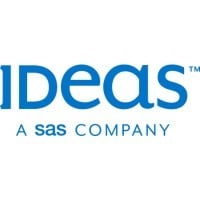Job TitleLearning Program Manager
Job Description
Brief Description of the Role:
The Learning Program Manager (PM) is responsible for analyzing, designing, developing, implementing, and evaluating the effectiveness of learning solutions within their domain. They collaborate internally and externally to bring in the best learning solutions that meet internal needs and align with external market standards. PMs maintain a wide network of suppliers capable of catering to global needs cost-effectively and with high quality. They work closely with Global HR Business Partners (GHRBP) to receive top-down organizational needs, then collaborate with key stakeholders and subject matter experts (SMEs) to further elaborate on these needs, establishing objectives, scope, success metrics, and defining project charters for key projects within their domains. Based on learning needs, PMs design the most preferred learning solutions following the 70:20:10 learning approach. They are also responsible for large-scale facilitation, if necessary, as part of the rollout of their proposed global learning solutions and for maintaining the Academy curriculum for their domain. PMs manage end-to-end project management of learning solutions within their domains, working in tandem with Learning Consultants, local PS, and/or IBO. Additionally, PMs are responsible for managing the budget for their domains.
Key Responsibilities
Needs Assessment and Solution Design
- Collaborate with Global HR Business Partners (GHRBPs) and key stakeholders/SMEs to analyze organizational learning needs and objectives.
- Define project charters and establish clear objectives, scope, and success metrics for learning projects within the domain.
- Design learning solutions based on the 70:20:10 learning approach, ensuring alignment with global standards and market trends.
- Work closely with content developers and external suppliers in solution design.
- Use data-driven decision-making in needs assessment.
Curriculum Management
- Maintain and update the Academy curriculum for the domain, ensuring alignment with organizational goals and industry standards.
Budget Accountability
- Manage budget allocation and expenditure for learning initiatives within the domain, optimizing costs while maintaining quality standards.
Project Management and Implementation
- Oversee end-to-end project management of learning solutions, including planning, development, implementation, and evaluation.
- Coordinate with internal and external stakeholders, including Local PS or IBO, to ensure smooth execution and rollout of global learning initiatives.
- Facilitate large-scale training sessions if required as part of the rollout process.
Assessment and Evaluation
- Design and implement assessment and evaluation strategies to measure effectiveness and impact.
- Monitor and analyze key metrics related to learning outcomes.
- Continuously improve learning solutions based on evaluation results.
- Collect feedback from trainers and participants to evaluate the quality and effectiveness of training sessions.
- Utilize data-driven decision-making in evaluation processes.
Change Management and Stakeholder Engagement
- Support the implementation of learning solutions through change management activities.
- Develop communication plans and engage stakeholders effectively.
- Ensure buy-in and adoption of learning initiatives.
Supplier Management and External Collaboration
- Cultivate and maintain a network of suppliers within the domain to meet global learning needs cost-effectively and with high quality.
- Collaborate externally to bring in the best learning solutions and stay abreast of market trends and innovations in L&D.
- Manage supplier relationship
- Organize quarterly business review with the supplier
Data Driven Approach:
- Be aware of key metrics in terms of participation and evaluation for learning solutions.
- Use these metrics to drive continuous improvement and ensure alignment with organizational goals.
Use a data driven approach to create new learning solutions based


